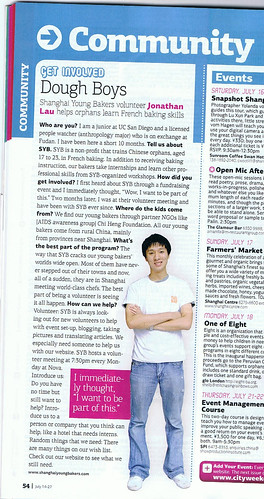A couple of weeks ago, I had coffee with a Ms. Lee, a public relations professional currently working in Shanghai. We discussed the state of PR in China and the effect of government censorship in her work. In addition, like in all my discussions, we touched on what it is like to work in this foreign country.
I was looking for an internship in PR in to gain some experience, but Lee told me it was best to start my PR career back in the states simply because China’s PR industry is still undeveloped. She explained that PR in China is still very tactical meaning that it is still event driven. In a more developed industry such as the United States, PR is much more strategic. A strategic PR takes into account the message itself and how to craft the message in order to best fit the target audience.
These observations of the Chinese PR industry really struck me because I could relate it to my work at nonprofit in Shanghai. There was a focus on planning fundraising events without actually thinking about how to create a sustainable program, especially since they were trying to crowd source all of their funding. The message for the project was not very clear, but the nonprofit was not concentrating on solving that problem but rather how to generate publicity.
Lee gave an interesting angle on Chinese protectionism that I had not considered or read about before. The way that Chinese protectionism manifests itself in the PR industry is in the form of censorship of foreign companies. As the government controls all domestic media outlets, foreign companies sometimes miss out on press coverage. In a worst case scenario, they are attacked in the media and not given a way to respond, which is exactly what happened to Paypal, when ChinaDaily ran an interview from the President of UnionPay stating that all China needed was UnionPay and adding in "More interbank networks will raise the cost of commercial banks and lower their profits."
On doing business in China, Lee and I had similar observations. We were both shocked by how slow and inefficient Chinese workers were. In addition, we noted that many places were overstaffed and full of redundancies. Since we met at a nonprofit, we touched on the subject of corporate social responsibility (CSR). Her work experience in the work place gave me a better understand of how CSR is perceived by corporations in China, something that I had only read about. Unsurprisingly, there is an undeveloped idea of corporate social responsibility with companies seeing CSR as just giving money rather than a way of doing business or even a way to sustainably give money.
I walked away from that meeting a much greater understanding of PR than I came in with. It feels good when the time you put into networking produces meaningful results.

No comments:
Post a Comment